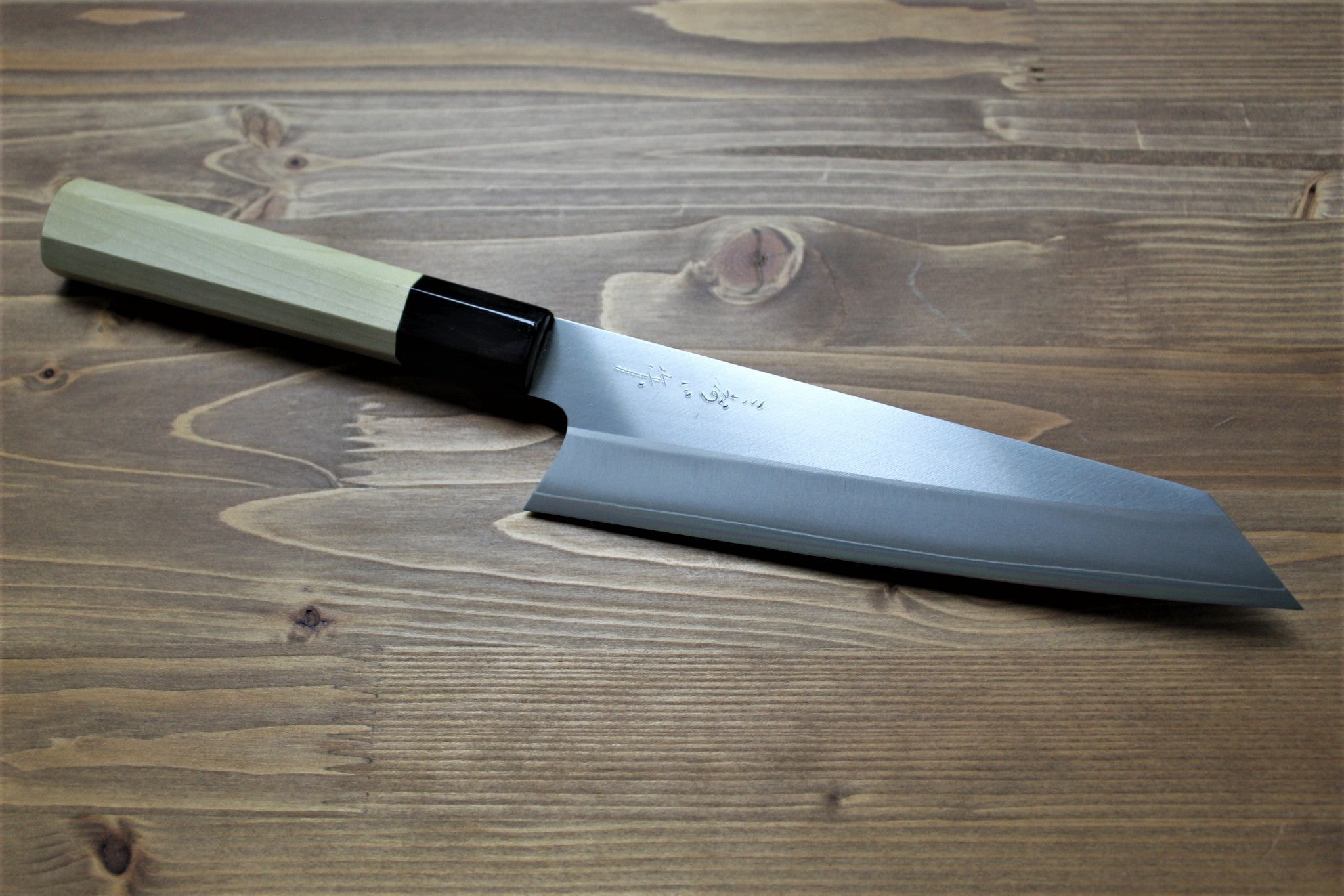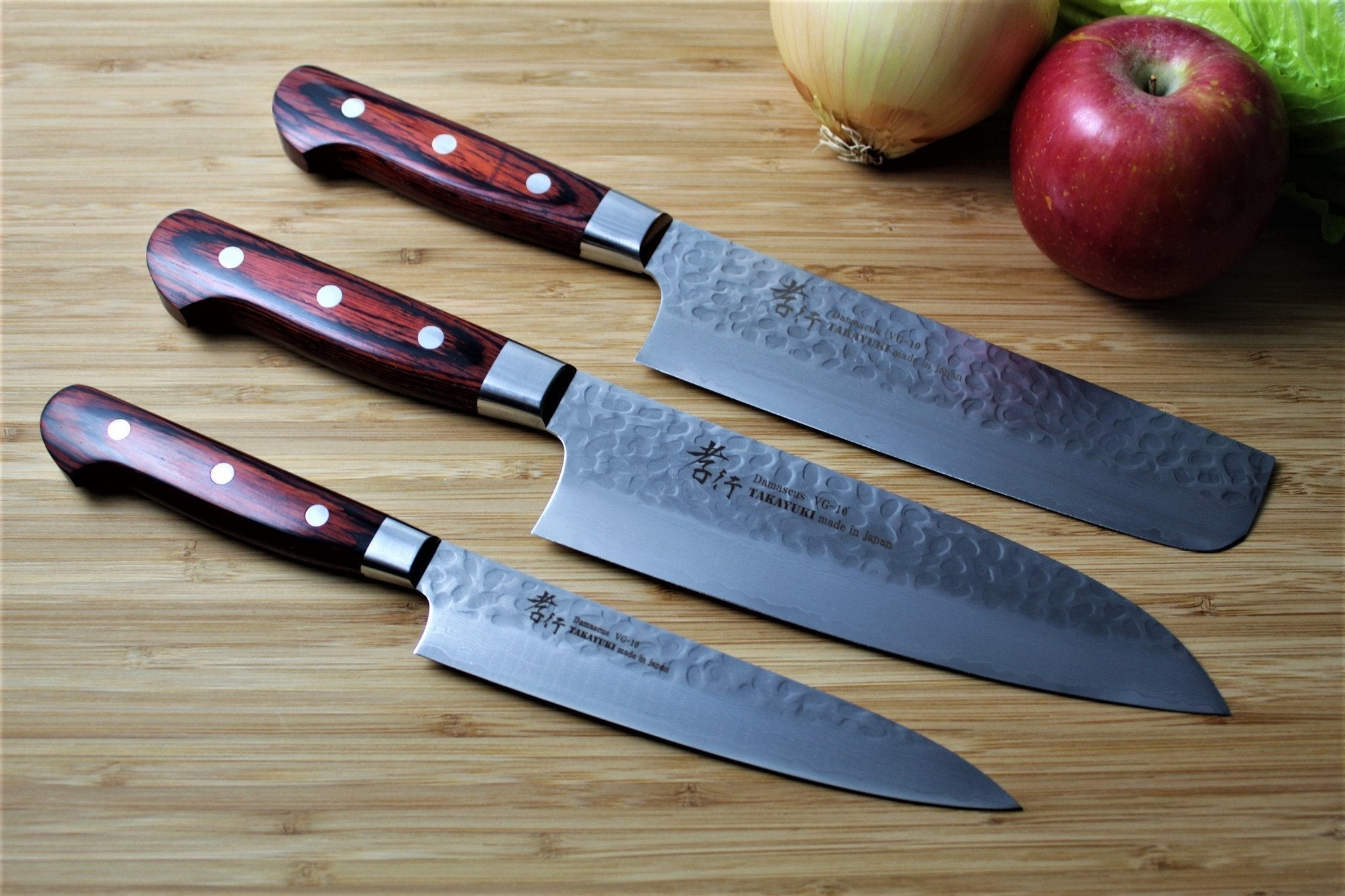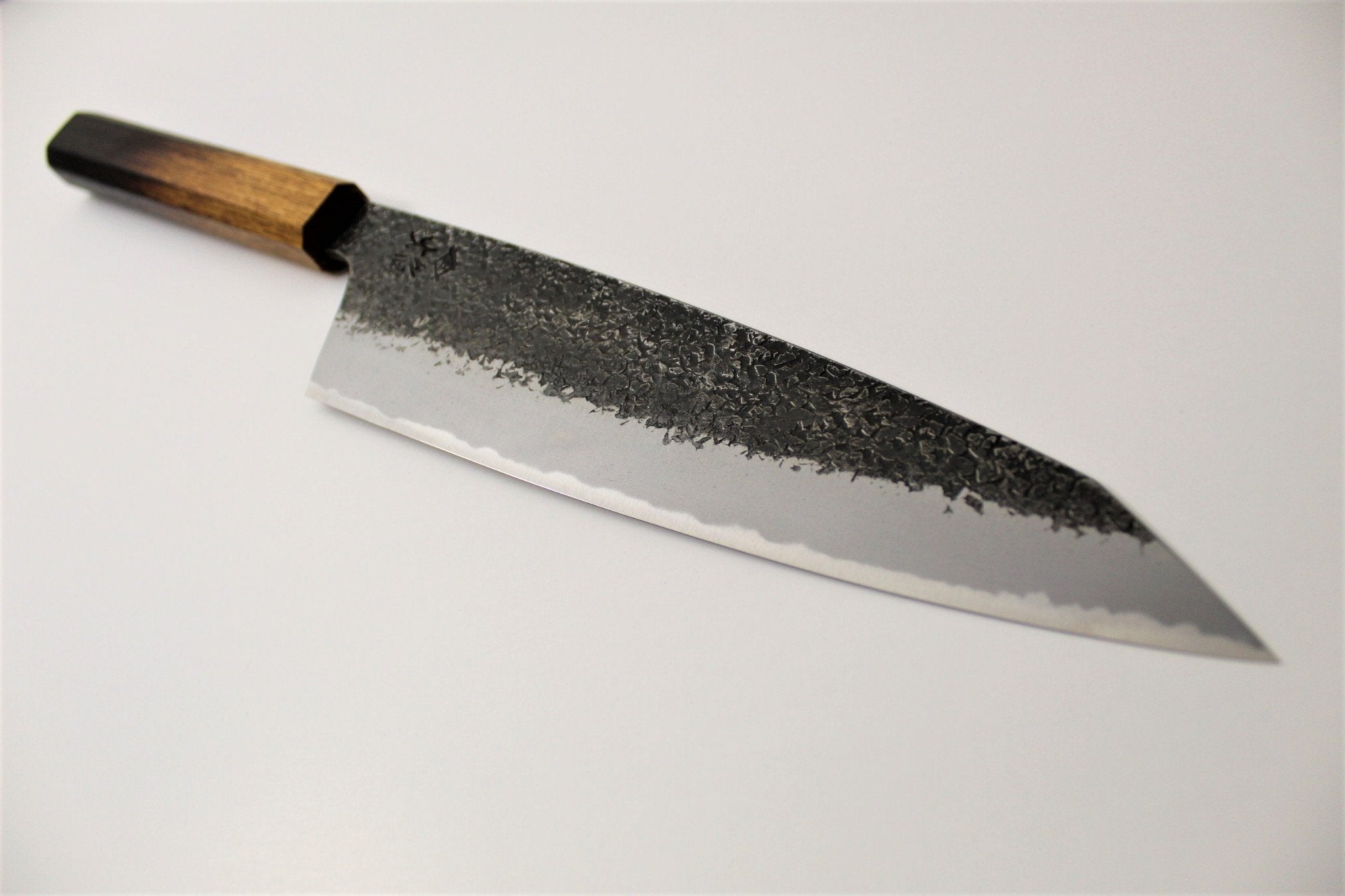When choosing between two of Japan’s most respected kitchen knives, the Misuzu Hamono Bunka VG-10 and the Sakai Takayuki 33 Layer Damascus Santoku 180mm, the decision often comes down to subtle details of craftsmanship, steel, and balance. This guide compares them side by side so you can choose confidently.
Overview of Each Knife
Misuzu Hamono Bunka VG-10
Made in Miki City by the renowned Misuzu Hamono workshop, this Bunka reflects three generations of knife-making expertise. Forged from VG-10 stainless steel, it balances durability with razor-sharp precision. The distinctive kengata-style tip brings deft control for detail work. Finished with a traditional magnolia handle, the Bunka offers a lightweight, responsive feel that rewards good technique.
Sakai Takayuki 33 Layer Damascus Santoku 180mm
Produced in Sakai City by Sakai Takayuki, this Santoku features a VG-10 core clad in 33 layers of Damascus steel. The 180 mm blade length is a sweet spot for home cooks and professionals alike. Its hammered Damascus finish helps reduce food adhesion, and the balanced, ergonomic handle is comfortable during long prep.
Blade Steel, Geometry & Performance
- Misuzu Hamono Bunka VG-10: The VG-10 stainless core provides excellent edge retention and corrosion resistance. Its slightly flatter edge and pointed tip excel at precise vegetable work, chiffonades, trimming herbs, and delicate scoring.
- Sakai Takayuki 33 Layer Damascus Santoku: Damascus cladding adds toughness and striking aesthetics. A touch more curve in the edge encourages smooth rocking, making it a true all-rounder across vegetables, herbs, and proteins.
Handle, Balance & Ergonomics
- Misuzu Bunka: Traditional magnolia handle keeps weight down and emphasizes agility—ideal for cooks who prefer fingertip control and precise tip work.
- Sakai Takayuki Santoku: A more balanced, hand-friendly handle supports longer sessions without fatigue, while maintaining cutting power for everyday tasks.
Ideal User & Cooking Style
- Choose the Misuzu Hamono Bunka VG-10 if you prize precision, lightweight control, and a blade that shines in vegetable prep and fine detail work.
- Choose the Sakai Takayuki 33 Layer Damascus Santoku 180mm if you want a versatile daily driver with beautiful Damascus cladding and comfortable balance.
Key Differences & Recommendations
While both knives showcase Japanese craftsmanship and high-performance VG-10 steel, their personalities differ:
- Misuzu Bunka: nimble and precise; artisan-made in smaller batches with a tip that rewards detail work.
- Sakai Takayuki Santoku: versatile, balanced, and visually striking with its 33-layer Damascus cladding.
If you want a precision tool rooted in boutique craftsmanship, choose the Bunka. If you want a beautiful all-rounder that makes an immediate impression, the Santoku is the better fit.
Quick Comparison Table
| Feature | Misuzu Hamono Bunka VG-10 | Sakai Takayuki 33 Layer Damascus Santoku 180mm |
|---|---|---|
| Blade Length | 180 mm / 210 mm | 180 mm |
| Steel | VG-10 Stainless | VG-10 core, 33-layer Damascus |
| Handle | Magnolia wood | Ergonomic, balanced |
| Profile | Flatter edge; kiritsuke tip | Slight curve; all-purpose profile |
| Strengths | Precision; lightweight control | Versatility; Damascus beauty; balance |





